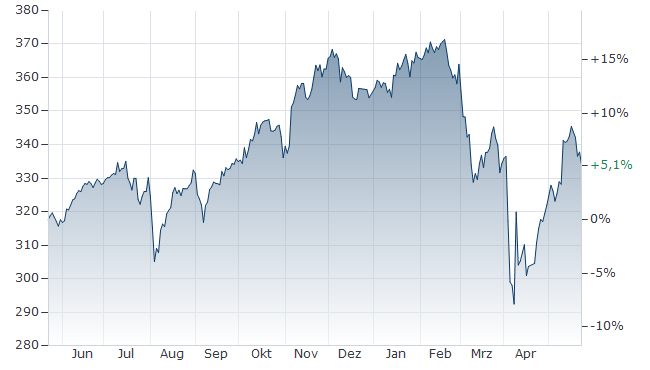OpenAI Under FTC Scrutiny: ChatGPT's Data Practices Examined

Table of Contents
Concerns Regarding Data Collection and Usage by ChatGPT
The FTC's investigation into OpenAI centers around several key concerns regarding ChatGPT's data practices. The scale of data collection and potential security breaches are major issues.
The Scale of Data Collection
ChatGPT's training involves an enormous dataset, raising serious questions about the source and consent of this data. This massive dataset fuels the AI's capabilities but also presents significant ethical and legal challenges.
- Data scraped from the internet: ChatGPT's training data is largely sourced from the internet, including text and code from various websites and platforms. This raises concerns about copyrighted material and the potential inclusion of personal information without explicit consent. The issue of data scraping and its legal ramifications is a key component of the FTC's investigation.
- Lack of transparency regarding data sources and processing methods: OpenAI has faced criticism for a lack of transparency concerning its data sources and the specific methods used to process and filter this data. This lack of transparency makes it difficult to assess the potential risks to user privacy and data security. Greater transparency in AI data practices is crucial for building trust.
- Potential for bias and discrimination: Biases present in the training data can lead to biased outputs from ChatGPT. This raises serious concerns about fairness and the potential for discrimination based on gender, race, or other protected characteristics. Mitigating bias in AI training data is a critical challenge for the entire AI industry.
Data Security and Breach Risks
The sheer volume of data handled by OpenAI presents significant security challenges. A data breach could expose sensitive user information and have serious consequences.
- Risk of data breaches and unauthorized access: The massive dataset used to train ChatGPT makes it a prime target for cyberattacks. A successful breach could expose user data, including personal information, conversations, and other sensitive data. Robust cybersecurity measures are essential for protecting this data.
- Potential misuse of user data: User data obtained through interactions with ChatGPT could be misused for malicious purposes, such as identity theft or targeted advertising. The FTC is particularly concerned about the potential for such misuse.
- Need for robust security measures: OpenAI needs to implement and maintain robust security measures to protect user data from unauthorized access, use, or disclosure. This includes regular security audits, encryption, and other best practices.
FTC's Focus on Compliance with Consumer Protection Laws
The FTC's investigation focuses on whether OpenAI's data practices comply with existing consumer protection laws and regulations. This investigation sets a precedent for AI regulation.
Violation of Existing Data Privacy Regulations
The FTC is assessing whether OpenAI's data practices violate existing consumer protection laws, including the Children's Online Privacy Protection Act (COPPA).
- Concerns about the collection and use of children's data: The use of data from minors in the training of AI models raises concerns about COPPA compliance. Protecting children's data is a paramount concern.
- Potential violations of data minimization and purpose limitation principles: The FTC may investigate whether OpenAI adheres to data minimization principles, collecting only necessary data, and purpose limitation, using data only for its intended purpose.
- Lack of adequate mechanisms for data subject access and control: Users should have the right to access, correct, and delete their data. The FTC is examining whether OpenAI provides adequate mechanisms for users to exercise these rights.
The Precedent for AI Regulation
The FTC's actions set a critical precedent for the regulation of AI. This investigation could influence the future development and deployment of AI technologies.
- Potential for future regulations and guidelines specifically targeting AI data practices: The FTC's investigation could lead to new regulations specifically addressing the data practices of AI companies.
- Increased scrutiny of other AI companies and their data handling procedures: Other AI companies are likely to face increased scrutiny regarding their data practices.
- Need for industry-wide standards for responsible AI development: The investigation underscores the need for industry-wide standards to ensure responsible AI development and deployment.
OpenAI's Response and Future Implications
OpenAI's response to the FTC's investigation and the broader implications for the AI industry are crucial factors to consider.
OpenAI's Efforts to Address Concerns
OpenAI has responded to concerns by outlining efforts to improve data privacy and security.
- Implementation of new data security measures: OpenAI has announced plans to enhance its data security measures to protect user data from unauthorized access.
- Commitment to transparency and improved user control over their data: OpenAI has stated its commitment to improving transparency and providing users with greater control over their data.
- Collaboration with regulators to develop industry best practices: OpenAI has indicated a willingness to collaborate with regulators to develop best practices for the AI industry.
The Broader Impact on the AI Industry
The FTC's scrutiny of OpenAI has broad implications for the AI industry.
- Increased focus on responsible AI development across the industry: The investigation is likely to increase the focus on responsible AI development and deployment across the entire AI industry.
- Greater emphasis on data privacy and security in AI systems: Data privacy and security are likely to become even more important considerations in the design and development of AI systems.
- Potential for slowed innovation due to increased regulatory hurdles: Increased regulation could potentially slow down innovation in the AI industry, but responsible development should outweigh this risk.
Conclusion
The FTC's investigation into OpenAI's data practices surrounding ChatGPT underscores the urgent need for robust regulations in the field of artificial intelligence. The vast amount of data used to train these powerful language models demands careful consideration of privacy, security, and ethical implications. The outcome of this investigation will shape the future of AI regulation, influencing OpenAI and the broader AI landscape. Understanding the implications of the FTC's scrutiny of OpenAI and ChatGPT’s data practices is critical. Staying informed about developments in AI regulation and responsible data handling is vital. Further research into OpenAI's data practices and the FTC's investigation is strongly encouraged.

Featured Posts
-
 Astonishing Police Chase Pair Refuels At 90mph
May 24, 2025
Astonishing Police Chase Pair Refuels At 90mph
May 24, 2025 -
 Pamyati Sergeya Yurskogo Trogatelniy Vecher V Teatre Mossoveta
May 24, 2025
Pamyati Sergeya Yurskogo Trogatelniy Vecher V Teatre Mossoveta
May 24, 2025 -
 Fedor Lavrov O Pavle I Lyudi Lyubyat Schekotat Nervy
May 24, 2025
Fedor Lavrov O Pavle I Lyudi Lyubyat Schekotat Nervy
May 24, 2025 -
 90 Let Sergeyu Yurskomu Pamyati Geniya Paradoksov
May 24, 2025
90 Let Sergeyu Yurskomu Pamyati Geniya Paradoksov
May 24, 2025 -
 Tracking The Net Asset Value Nav Of Amundi Msci World Ii Ucits Etf Dist
May 24, 2025
Tracking The Net Asset Value Nav Of Amundi Msci World Ii Ucits Etf Dist
May 24, 2025
Latest Posts
-
 Find The Best Memorial Day 2025 Sales A Comprehensive Guide
May 24, 2025
Find The Best Memorial Day 2025 Sales A Comprehensive Guide
May 24, 2025 -
 Low Gas Prices Forecast For Memorial Day Weekend
May 24, 2025
Low Gas Prices Forecast For Memorial Day Weekend
May 24, 2025 -
 Memorial Day Weekend In Nyc A Weather Forecast
May 24, 2025
Memorial Day Weekend In Nyc A Weather Forecast
May 24, 2025 -
 Memorial Day Weekend Fueling Your Trip On The Cheap
May 24, 2025
Memorial Day Weekend Fueling Your Trip On The Cheap
May 24, 2025 -
 Best Memorial Day 2025 Sales Where To Find The Biggest Discounts
May 24, 2025
Best Memorial Day 2025 Sales Where To Find The Biggest Discounts
May 24, 2025
